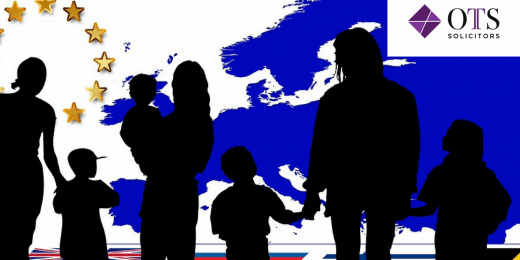Assessing International Parents in Contentious Child Arrangement Matters

In the case of London Borough of Tower Hamlets v D, E and F [2014] EWHC 3901 (Fam), the court observed that:
“even the prescient architects of the Children Act 1989 could not have envisaged the considerable cultural changes that were to take place in the United Kingdom in the 23 years that followed the implementation of that Act. British society is now multicultural. Assessing parents and family members may, quite frequently does, involve considering individuals based anywhere in the world. I do not believe that the obligation to explore the family option for a child is weakened in any way by geography, although it can provide real challenges to already overstretched resources”.
International families can present challenges to local authorities and the best family law solicitors in children matters, whether they be in the private or public law arena. One such challenge is whereby a family member who is living abroad seeks a private law order in respect of a child or children residing in the UK. Even before any Immigration matters are considered regarding the family member being able to enter the country to have contact with the child, it must be established how and in what form any reports required by the court will be prepared.
This issue was discussed in the case of London Borough of Tower Hamlets v D, E and F. Before considering the decision and its implications for future cases, it is useful to consider the type of reports required in private law cases relating to a vulnerable child and/or contentious contact matters.
The Children Act 1989
The Children Act 1989 (the ‘Act’) is the principle legislation which governs private and public family law proceedings for children habitually resident in England and Wales.
Under section 7 of the Act, the court can ask a Cafcass worker, a Welsh family proceedings officer, a local authority, or any other person to provide a report on any matters relating to the welfare of the child.
Acquiring section 7 reports when a family member is overseas
If a family member seeking a private law order relating to a child is overseas, issues can arise when it comes to preparing the required reports. As has been pointed out by other family law solicitors, due to operating under tight budgets, it is unlikely Cafcass or a local authority will provide the resources for someone to travel overseas and compile a welfare checklist. And in some countries, obtaining such reports as are required by English and Welsh courts may be illegal without the appropriate visas, insurance, or permission being obtained.
When it comes to private family proceedings, unless the solicitor acting for the family has the knowledge and contacts in the local country to obtain the report from an independent social worker, the cost and practicalities of getting the required information are often too high.
In London Borough of Tower Hamlets v D, E and F, F and the first respondent mother (M) had married in Somaliland when M was 15. M had obtained the help of the British Embassy to escape to the UK with C and their younger sister (W), claiming that F had physically abused her. After suffering a major psychological breakdown, M neglected C and W, and W died from malnutrition. M was awaiting sentencing after having pleaded guilty to permitting W's death and to the neglect of C. C, who was four and a two-year-old sibling had been taken into foster care. F had stated that he wished to care for the children, but the local authority had concluded that, in view of the general situation in Somaliland, it was unsafe for a social worker to go there to assess him.
The court held that in such situations, three principles applied:
- every opportunity should be taken to explore the option of the child being taken care of by their parent;
- that obligation is part of the parent and child’s rights under Article 8 of the European Convention on Human Rights; and
- in evaluating the reality of the available options and the ambit of the assessment needed, the child’s welfare is the paramount consideration.
It was held the only way for the father to advance his petition to care for his children was to obtain a visa, come to the UK, and make himself available for assessment. The court stated it was simply far too dangerous for a social worker to be sent to war-torn Somalia to make an assessment and compile the necessary reports. Furthermore, even if it were possible, it would not be in the best interests of the children to travel to a land where they had no cultural attachment, and the support services they needed to recover from their trauma were simply not available.
How OTS Solicitors can assist international parents in contentious child arrangement matters
Because OTS Solicitors specialises in both Immigration and family law, our firm has the cultural knowledge and contacts in a number of countries which can be utilised to obtain section 7 reports and any other information required by the courts in an international child arrangement matter. In addition, if the internationally-based parent requires a visa to travel to the UK to attend court or mediation, we can advise on the application form and supporting documentation.
For parents who have access to funds, we can arrange for an independent social worker to provide a high-quality report. Often this can be obtained faster than a Cafcass report, as the organisation is often extremely busy. Paying for a private report can sometimes significantly reduce the time-scale of proceedings.
OTS Solicitors is a respected Immigration and family law firm in London and is highly recommended by the Legal 500. By making an appointment with one of our Family Solicitors, you can be assured of receiving some of the best legal advice available in the UK today. Please contact us on 0203 959 9123.



